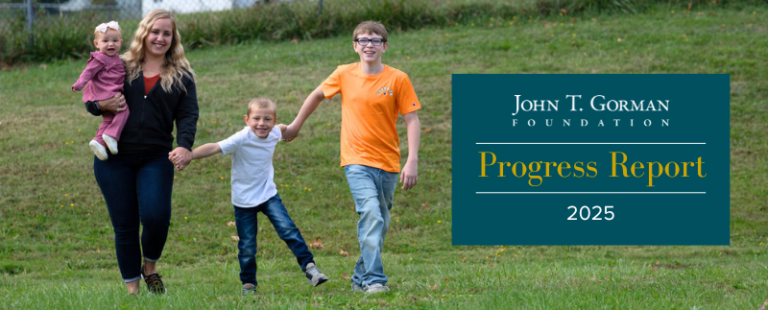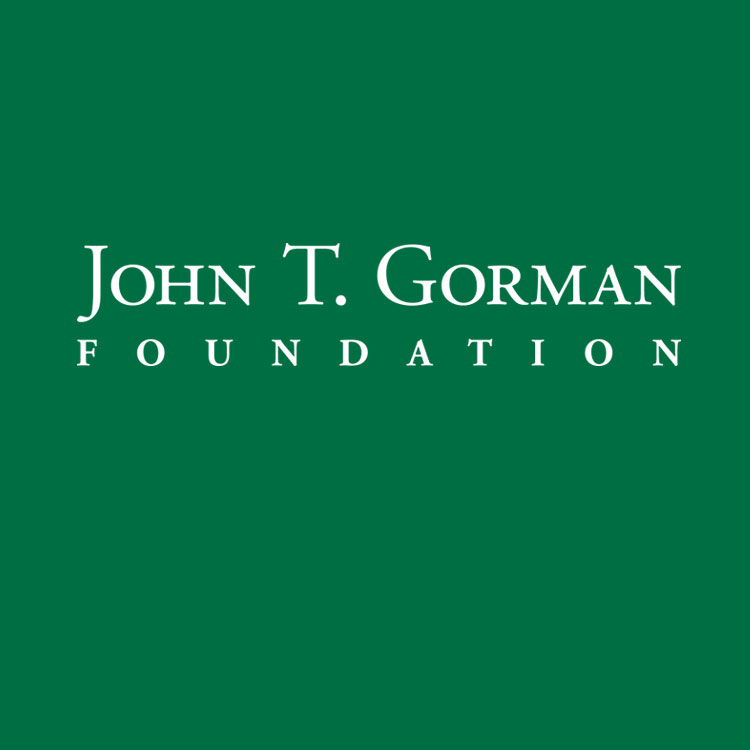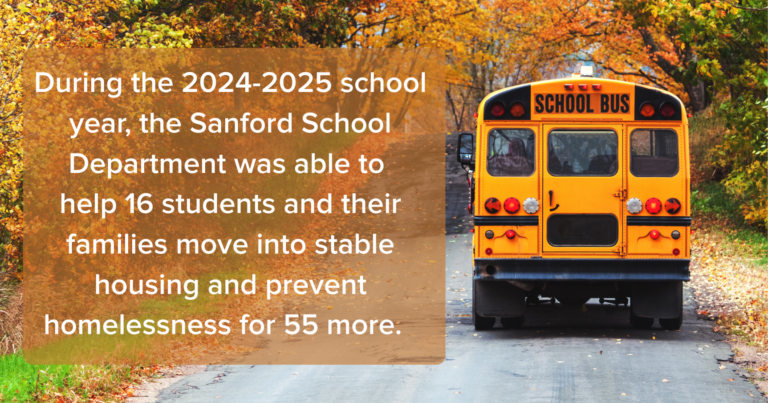John T. Gorman Foundation partner Adoptive and Foster Families of Maine has served kinship, foster, and adoptive families since 1997

Inside and outside the foster care system, thousands of children in Maine rely on their grandparents, aunts, uncles, and other relatives or close family friends to provide and care for them full-time. These “kinship families” are invaluable for children in vulnerable situations. They allow children to live with adults they know and trust while providing safety, stability, and love. Yet these families often face steep challenges with limited outside support.
Since 1997, Adoptive and Foster Families of Maine (AFFM) has helped meet their needs. The nonprofit provides support to adoptive, foster, and kinship families, with services that include peer support groups, trauma-informed parenting training, legal information, basic needs assistance, and navigators who walk families through unfamiliar systems.
“We try to be that first call,” says Executive Director Travis Bryant. “Someone calls and says, ‘Here’s what just happened.’ We listen, we help, and we follow up.”
Bryant brings both lived and professional experience to the role. His parents were foster parents when he was growing up, and his extended family has grown through adoption. He began at AFFM as a college intern, then moved into a full-time position before stepping into leadership in 2018.
Kinship Families Answer the Call
A growing share of calls to AFFM come from kinship families – those formed through state placements as well as those arranged within families. According to 2021 data from Grandfamilies.org, more than 9,000 children in Maine are being raised by kin with no parent present. Of the 7,389 caregivers providing for them, 1,360 live below the poverty level. The state’s Office of Child and Family Services reported that in 2021, 41 percent of the 2,251 children in custody were placed with relatives.
Studies have shown positive benefits for children living in kinship families. Compared to those in non-kinship foster care, children in kinship care have more stable placements, lower rates of re-abuse, better behavioral and mental health, and higher chances of remaining with their siblings.
Yet these families face urgent and complex challenges, especially during their frequently stressful formations. A retired grandparent on a fixed income may suddenly need to cover food, clothing, transportation, and school supplies. The demands often come with no warning, time to plan, or outside support – especially if the care is not being provided through the foster care system.
“Imagine you’ve got $100 left after paying your bills,” Bryant describes. “Then suddenly you need to clothe a child, feed them, put gas in the car, buy them a bed. That same $100 now has to do all of that. And nobody planned for it.”
The emotional weight adds another layer of complexity. These caregivers are often raising the children of their own adult sons or daughters. That role shift to full-time parenting brings grief, stress, and identity loss.
“They’re managing the grief of their own child,” Bryant shares. “They don’t get to be Grammie anymore, or the fun auntie. They’re the parent now. And that’s a loss, too.”
Guiding Families Through Challenges
AFFM’s Kinship Navigator Program guides families through these challenges. Navigators, many with shared experiences, walk caregivers through legal processes, benefit enrollment, and emotional recovery. They connect families with peer networks and coordinate donated goods. When needed, they join families on calls to state agencies. Monthly peer groups and an online swap page help caregivers connect, share, and support each other.
Over the last two years, the John T. Gorman Foundation has partnered with AFFM to expand and strengthen these supports. Funding has helped the organization provide emergency assistance to kinship families facing crises like heating loss, food insecurity, or urgent transportation needs; extend AFFM’s reach into rural counties where services are often limited or unavailable; and work toward national accreditation needed to leverage additional funding sources.
“Because kinship families are built on existing relationships, they are uniquely positioned to be a positive and protective force in a child’s life,” said John T. Gorman Foundation Program Associate Jean Cousins. “Adoptive and Foster Families of Maine is doing incredible work to provide the critical support these families need to thrive amid complex challenges.”
According to Bryant, one of the most valuable resources AFFM offers is connection.
“The most magical thing is watching families realize they’re not alone,” he says. “They show up thinking no one else is in their situation. Then they meet another grandparent raising a grandchild and say, ‘You too?’ That connection can change everything.”



